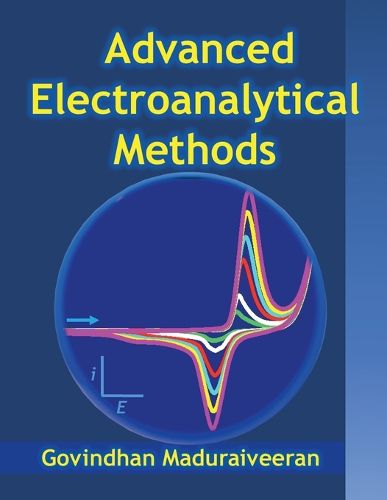Readings Newsletter
Become a Readings Member to make your shopping experience even easier.
Sign in or sign up for free!
You’re not far away from qualifying for FREE standard shipping within Australia
You’ve qualified for FREE standard shipping within Australia
The cart is loading…






This title is printed to order. This book may have been self-published. If so, we cannot guarantee the quality of the content. In the main most books will have gone through the editing process however some may not. We therefore suggest that you be aware of this before ordering this book. If in doubt check either the author or publisher’s details as we are unable to accept any returns unless they are faulty. Please contact us if you have any questions.
About Book
Books on modern electroanalytical methods explore techniques used to analyze chemical and biological systems by measuring electrical properties like current, voltage, and charge.
Key topics typically include voltammetry, which measures current as a function of potential to study redox reactions, and potentiometry, which focuses on voltage measurements without drawing current, such as in pH electrodes.
Coulometry, used for quantifying substances by measuring the total charge, and amperometry, which measures current at a fixed potential, are also common techniques.
Electrochemical impedance spectroscopy is important for studying the resistance and capacitance of electrochemical interfaces, and electrochemical sensors, which detect specific analytes, are widely covered.
Applications span fields like environmental monitoring, pharmaceuticals, food safety, and energy storage. These resources are valuable for understanding the theory and application of electroanalytical chemistry.
Moreover, I am pretty sure that this book will improve the confidence of young researchers and students to think and remember advanced electroanalytical methods and concepts.
I highly believe that this book will go a long way to satisfy the long-felt need of young researchers/students for a friendly guide on electrochemical analytical strategies.
Thank you,
Dr. Govindhan Maduraiveeran
$9.00 standard shipping within Australia
FREE standard shipping within Australia for orders over $100.00
Express & International shipping calculated at checkout
This title is printed to order. This book may have been self-published. If so, we cannot guarantee the quality of the content. In the main most books will have gone through the editing process however some may not. We therefore suggest that you be aware of this before ordering this book. If in doubt check either the author or publisher’s details as we are unable to accept any returns unless they are faulty. Please contact us if you have any questions.
About Book
Books on modern electroanalytical methods explore techniques used to analyze chemical and biological systems by measuring electrical properties like current, voltage, and charge.
Key topics typically include voltammetry, which measures current as a function of potential to study redox reactions, and potentiometry, which focuses on voltage measurements without drawing current, such as in pH electrodes.
Coulometry, used for quantifying substances by measuring the total charge, and amperometry, which measures current at a fixed potential, are also common techniques.
Electrochemical impedance spectroscopy is important for studying the resistance and capacitance of electrochemical interfaces, and electrochemical sensors, which detect specific analytes, are widely covered.
Applications span fields like environmental monitoring, pharmaceuticals, food safety, and energy storage. These resources are valuable for understanding the theory and application of electroanalytical chemistry.
Moreover, I am pretty sure that this book will improve the confidence of young researchers and students to think and remember advanced electroanalytical methods and concepts.
I highly believe that this book will go a long way to satisfy the long-felt need of young researchers/students for a friendly guide on electrochemical analytical strategies.
Thank you,
Dr. Govindhan Maduraiveeran